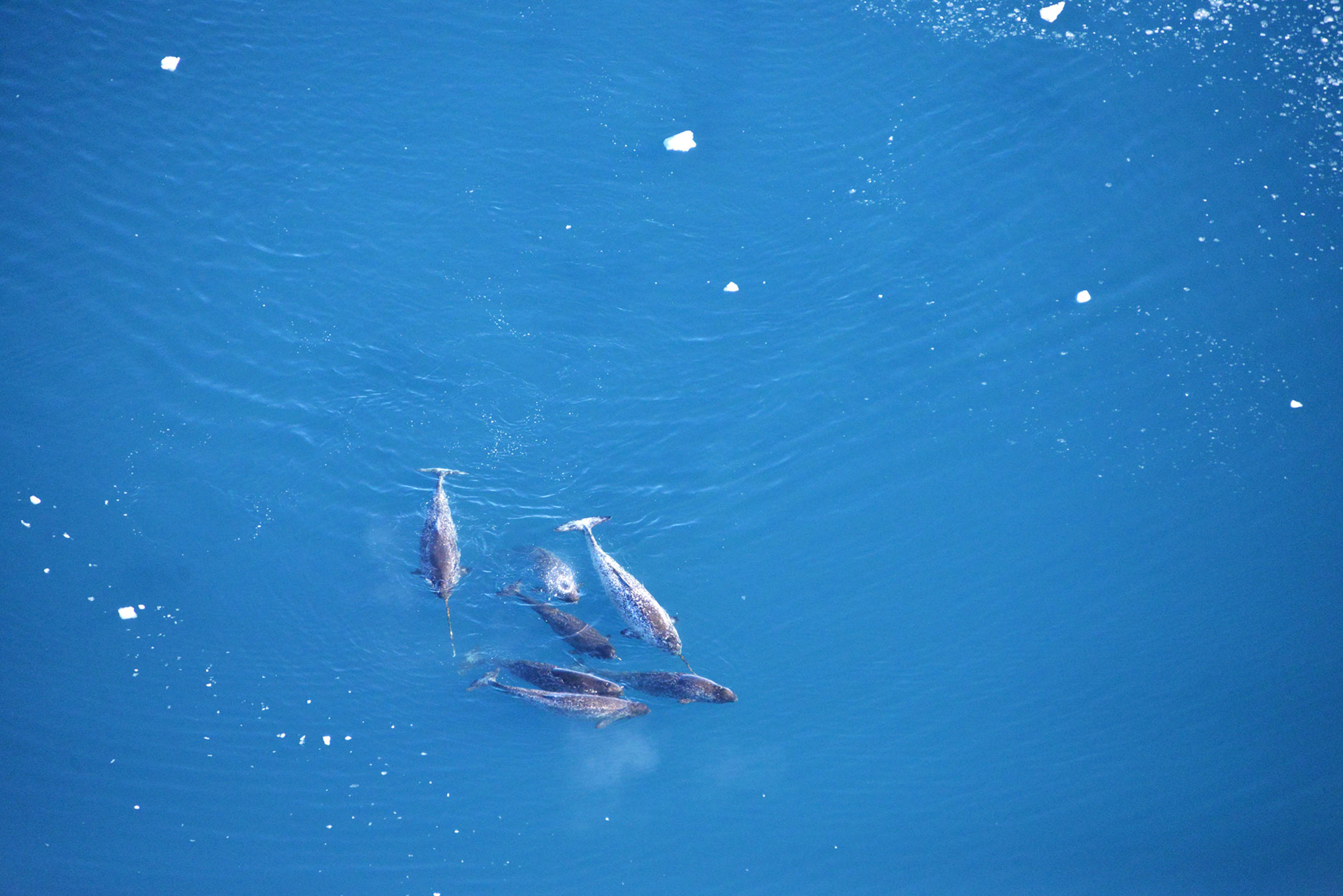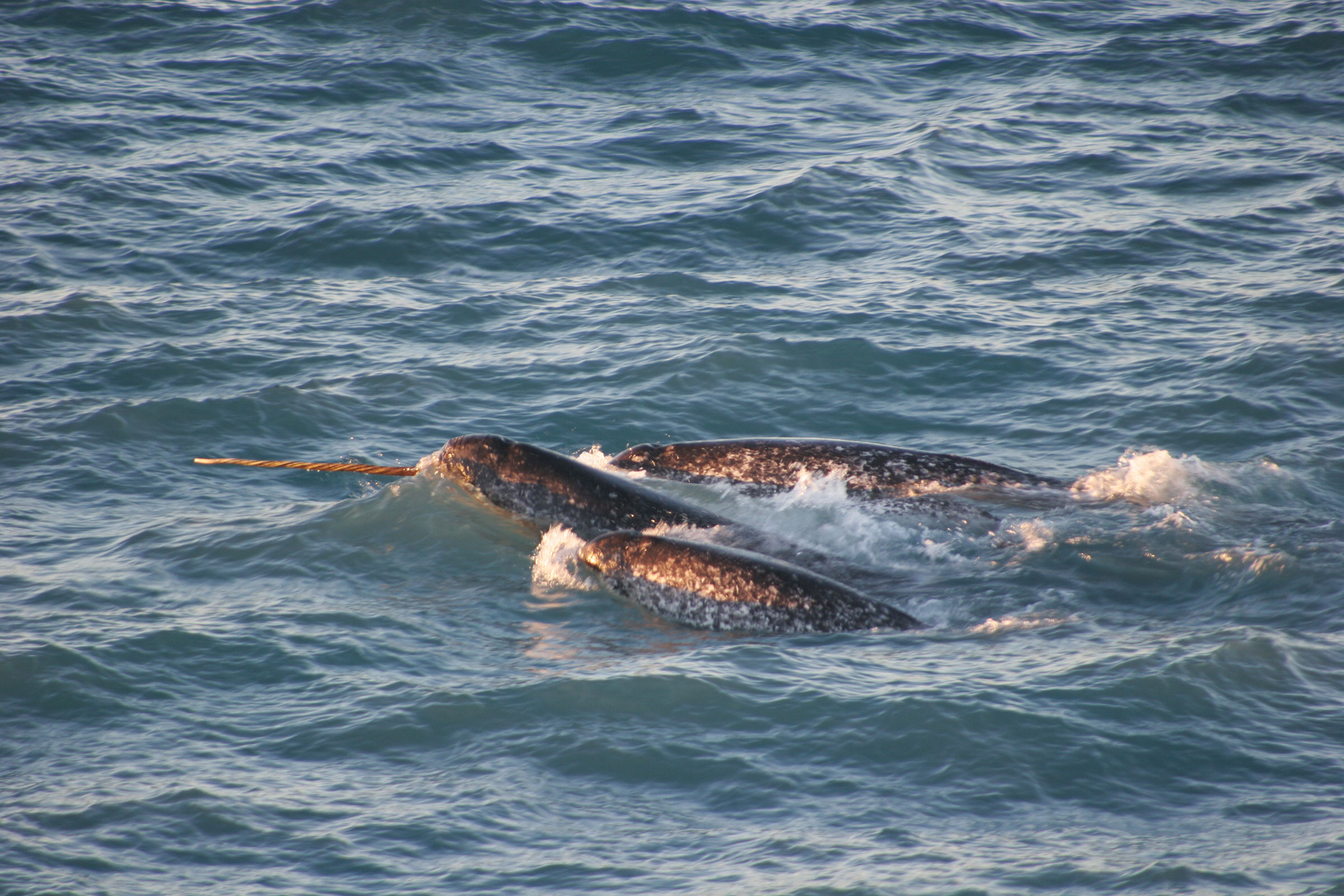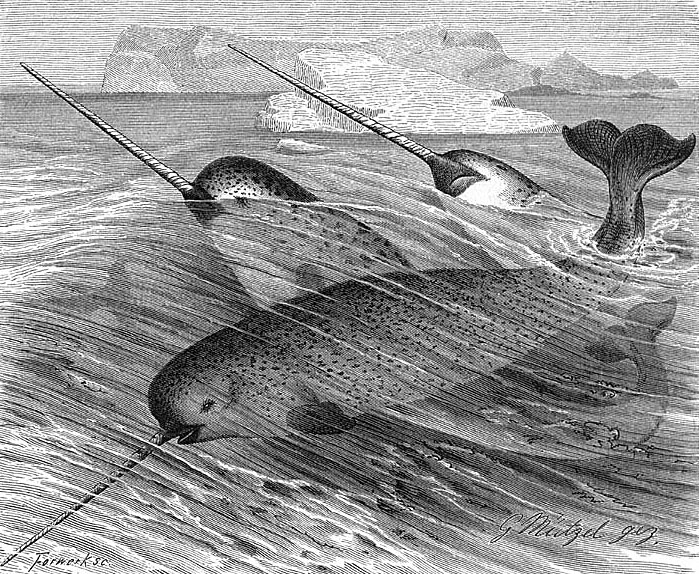Narwhal behavior and ecology
The narwhal (Monodon monoceros) is an Arctic cetacean occupying a habitat characterized by environmental extremes. Narwhal movement studies range from work to 1) identify spatial and temporal sub-population specific movement patterns and elucidate stock discreteness, 2) evaluate narwhal habitat selection in relation to prey resources and natural or anthropogenic changes in the highly specialized sea ice habitat, and 3) development of methods for understanding resource selection and habitat use from satellite-linked radio telemetry data. Furthermore, we are developing methods for using passive and active acoustics as a tool to monitor narwhals in icy seas, which will help understand the impact of increased sound in the Arctic. Finally, we are using tagged narwhals as autonomous oceanographic sampling platforms to monitor changes in temperatures in either deep water (>1,800 m) offshore Baffin Bay or at glacier fronts along the coast of Greenland. The results of this research identify processes key to determining effects of climate change on narwhal adaptation, fitness, and survival, and demonstrate that narwhals are important indicators for change in offshore habitats of the high Arctic. This work has been funded by NASA, ONR, NOAA Ocean Exploration, and the Greenland Institute of Natural Resources.



